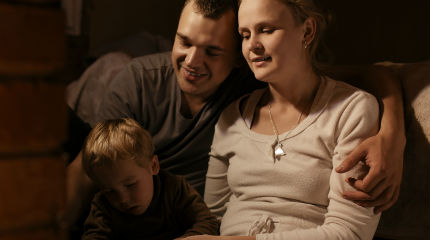
Transitional & Recovery Housing
We offer:
Supportive Housing:
Supportive housing improves housing stability, employment, mental and physical health, and school attendance; and reduces active substance use. People in supportive housing live more stable and productive lives.
Supportive housing costs essentially the same amount as keeping people homeless and stuck in the revolving door of high-cost crisis care and emergency housing. Supportive housing helps build strong, healthy communities by improving the safety of neighborhoods, beautifying city blocks with new or rehabilitated properties, and increasing or stabilizing property values over time.
Homelessness Housing:
For men facing homelessness who are seeking recovery from addiction, we offer closely supervised care, recovery counseling, work therapy, peer support groups and much more. Men may stay in this program for up to 24 months and are encouraged to set and achieve goals related to self-sufficiency while in residence. Graduates usually transition to permanent housing after completing the program and return as alumni to support new members.
Mothers with Children:
The Empowerment program offers permanent supportive housing for mothers with minor children who have faced chronic homelessness and have a documented disability. We provide case management and wraparound services such as life skills training, GED assistance, employment assistance and more to assist our clients in achieving their highest level of self-sufficiency. Children also receive services that include linkage to mentor programs, school, summer camps and tutoring resources.
Connections Program:
Many who may be otherwise self-sufficient find themselves in situations—such as unexpected medical emergencies, Domestic Violence, or sudden job losses—that would result in homelessness apart from an intervention. We offer temporary rental assistance to help these individuals get back on their feet through our Connections Program. Qualifying participants receive targeted rental assistance, case management support and the opportunity to participate in life skills or peer support activities for up to six months.

Domestic Violence
- Safe House Program
- 24-Hour Domestic and Dating Violence Hotline
- Consultations with Volunteer Attorneys
- Domestic Violence Support Groups
- Community-Based Advocacy
- Child and Family Advocacy
- Legal Advocacy
- Making Change
- Financial Strategies
- Elder Abuse Advocacy
- Dating Violence Prevention
- Supervised Visitation Center
- Community Education
Veterans: Male and Female
The goal of the Veterans Inc. Housing Program is simple: to end chronic homelessness among veterans in our communities. Achieving that goal is complex, requiring more than putting a roof over our veterans’ heads. It requires a holistic approach that addresses the “total veteran” and his or her needs. Veterans housing comes with a full range of support services including;
- Animal therapy
- Counseling Psychiatric
- Dental
- Groups
- Intensive case management
- Meals
- Employment and training program
- Legal
- Medical
- Medication management
- Nursing services
- Pharmacy
- PTSD
- Substance abuse

Transitional Youth Services (Age 16-25)
Program Snapshot
Once enrolled in the program, residents work with case managers to complete an Independent Living Plan (ILP). The ILP helps to identify individual goals including life skills, employment, education, and permanent housing. Residents must meet with their case manager at least once a week. Residents who are unemployed or interested in finding a different job will meet with an employment specialist that assists with resume building, job searches, interview preparation, and goal setting.
Residents who are working are required to pay a security deposit. If a resident is unable to pay the deposit, a payment plan will be established. Residents are required to pay 30% of their income in rent, which teaches skills in budgeting and saving money for housing expenses while establishing a rental payment history to assist clients in obtaining permanent housing upon program graduation. Residents are required to perform 32 hours a week of active participation toward goals that promote self-sufficiency. Some activities that count toward the 32-hour productivity requirement include employment, GED/high school/college classes, job searching, submitting housing applications, volunteering, and life skills classes.
Residents are also required to attend group meetings. These are typically evening meetings, up to four times per month, in which professionals and community members speak to the group about resources, programs, and life skills/parenting education.
Some meeting topics include:
- Sexual Health Education & Family Planning
- Cultural Competency Workshop
- Cooking on a Budget
- Computer Training
- Arts and Crafts
- House field trips to entertainment venues across the county
- Safe Dating
- Leadership Development Series for young women including Building Bonds, Developing Powerful Capacities, identifying our Filters and Perspectives, Drama: The Cost and Payoff, Gremlins: Quieting our Inner Critic, Communication, Credo and Commitment, Community and Completion
- Drug Prevention Education
- Basic Household Maintenance
- Financial Management & Budgeting
- Resource Connection
- Hygiene and Personal Care
The maximum length of stay for each program differs, but it varies between 18-24 months.
Aftercare for residents exiting the program is provided for at least one year, helping to reinforce skills, provide additional support and access to resources, and ensure stable, long-term housing for former residents.
